The 17th edition of the L’Oréal-UNESCO France Young Talent Award for Women in Science is a reminder of the important contribution made by women scientists to solving the major environmental, health and social challenges we face today. Université Paris Cité congratulates the 10 winning doctoral and post-doctoral students, who proudly represented our university.
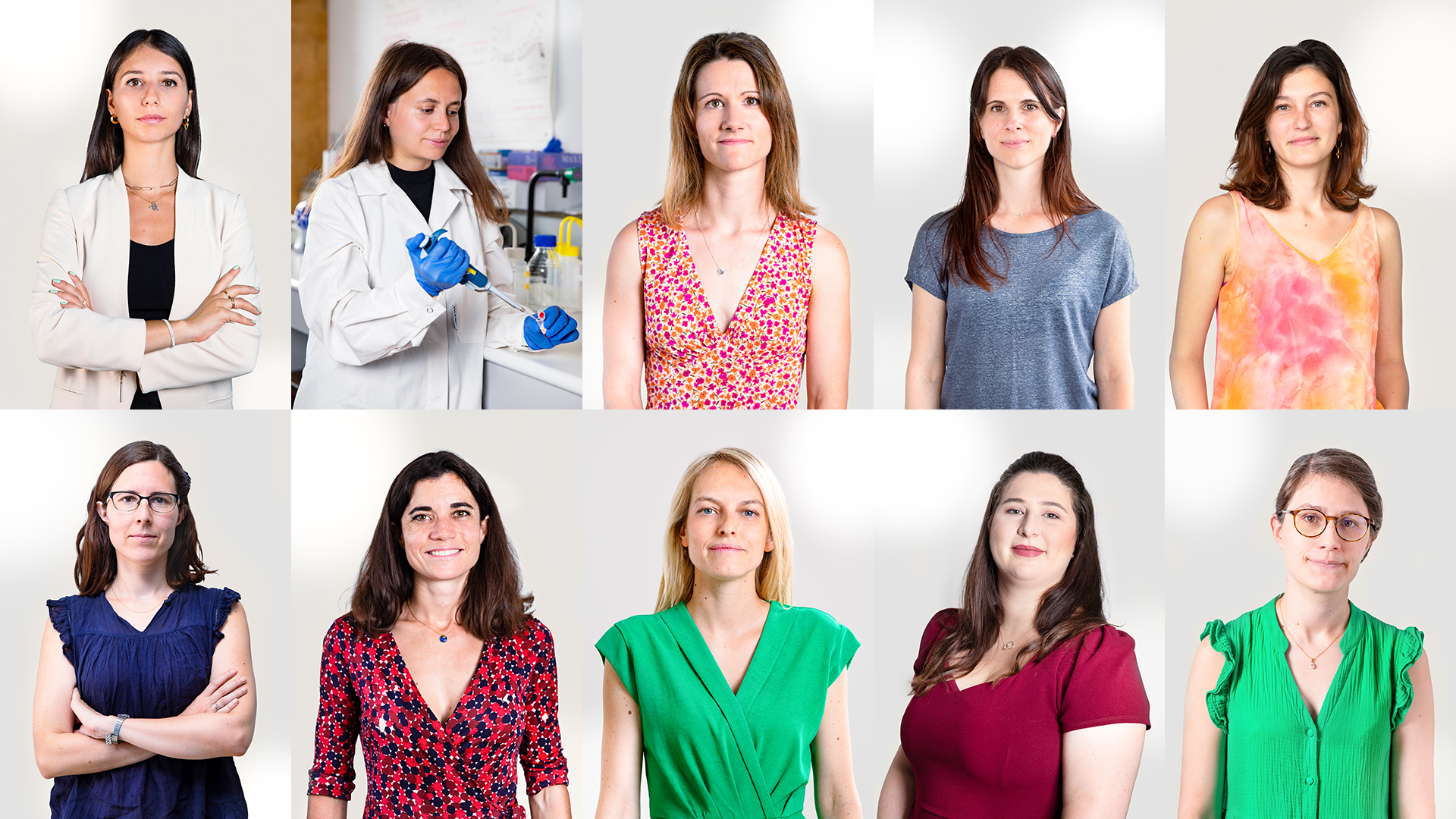
“By rewarding and highlighting, as it does every year, 35 young women researchers from all horizons, experts in disciplines as varied as medicine, computer science, physics, mechanics or the biological sciences, the L’Oréal Foundation is working to encourage more scientific vocations among the new generation and to increase the recognition of female talent.”
Alexandra Palt, Managing Director of the L’oréal Foundation
For many years now, the L’Oréal Foundation has been committed to working alongside women to promote their contribution to science. The Young Talent Prize rewards women researchers whose work contributes to building a better, more sustainable, more resilient and more inclusive world. This year, 618 young women researchers of 59 nationalities applied. 35 Young Talents, conducting their research in mainland France or the French overseas territories, were selected by a jury of excellence.
Université Paris Cité would like to congratulate 8 of them in particular for their work in physics, astronomy, biochemistry, quantum physics, extraterrestrial life, genetic mutations, cancers and chronic diseases, and mental and child health.
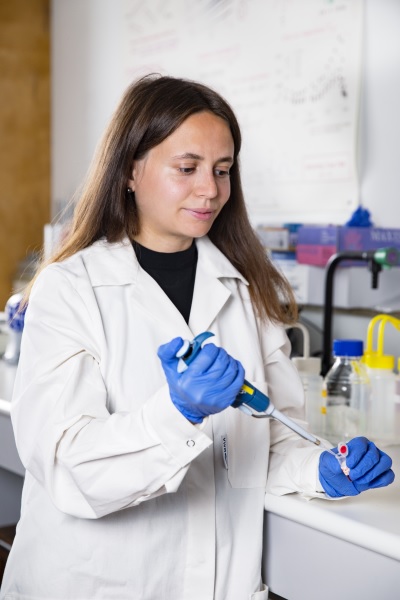
Alice Briole, PhD student at the Matter and Complex Systems Laboratory, Université Paris Cité and CNRS
Alice has devoted her thesis to a subject at the crossroads of medicine, biology and biotechnology: the study of red blood cells in patients suffering from a genetic blood disorder, depranocytosis. Her aim is to develop a technique that will enable early testing to anticipate complications in sickle cell anaemia, the most prevalent genetic disease in France. She has been working on a fluorescent marker that can probe the rigidity of blood cells. In the long term, this technique could lead to the creation of a test to predict attacks – and significantly improve patients’ lives.
Laetitia Grabot, post-doctoral researcher at the Centre Neuroscience et Cognition, Université Paris Cité and CNRS
Laetitia is interested in a particular aspect of the brain: the movement of cerebral oscillations, a signal involved in all aspects of cognition, on the surface of the cortex. She is working on a mathematical model that makes it possible to study these oscillations without the need for invasive techniques. The results should open up new research opportunities for a better understanding of how the brain works, as well as improving the performance of brain-machine interfaces.
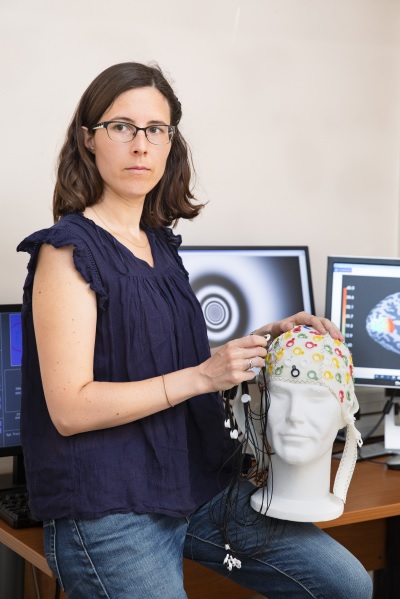
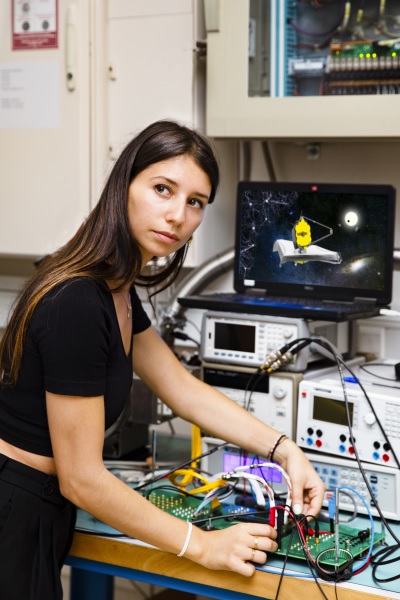
Achrène Dyrek, doctoral student in the Astrophysics Instrumentation Modelling research unit, Université Paris Cité, CEA, CNRS
She is devoting her research to the study of exoplanets, whose discovery was a revolution in astronomy. By observing the atmosphere of an exoplanet, we can learn more about its formation and evolution, as well as the temperature, pressure and chemical conditions that prevail there. In the long term, these answers will make it possible to characterise the exoplanets known to date, to understand the uniqueness of our solar system and assess the conditions of habitability.
Aurore Claude-Taupin, post-doctoral researcher at the Institut Necker Enfants malades, Université Paris Cité, Inserm, CNRS
Aurore discovered her vocation during her BTS in Biotechnology and decided to pursue research in biology. After a thesis on the role of autophagy, the self-digestion of cells, in breast cancer, she continued her work by studying the impact of mechanical forces on cancer cells, to investigate the role of blood flow in regulating autophagy and the ability of renal cancer cells to form new metastases. In the near term, his research will provide a better understanding of the impact of blood flow intensity on the survival of circulating metastatic cells via autophagy, with a view to developing new therapeutic targets in the longer term.
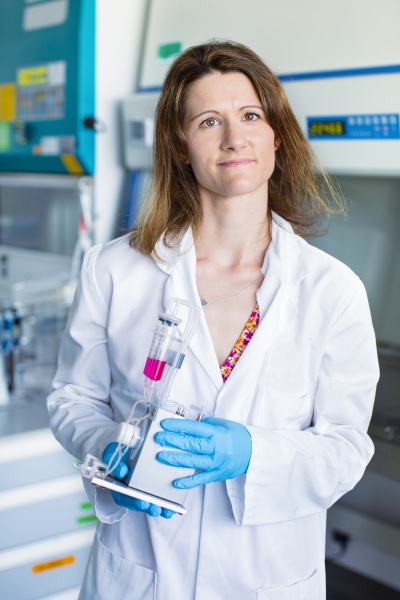
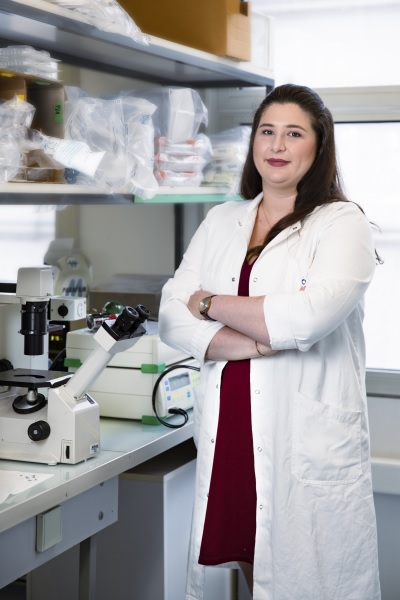
Suzanne Faure-Dupuy, post-doctoral researcher in the Biology of Phagocytes, Infection and Immunity team at the Institut Cochin, Université Paris Cité, Inserm
After first falling in love with research, Suzanne chose virology for her thesis, with the aim of understanding how a simple virus can wreak such havoc on the complex human organism. Now a post-doctoral fellow at the Institut Cochin, she is studying the effect of the virus responsible for the common cold on macrophages, the cells that make up our immune system. In the long term, this will make it possible to develop therapeutic targets for patients suffering from chronic lung disease, such as chronic obstructive pulmonary disease. As an immunologist and virologist, she is convinced that reactivating the functions of macrophages during viral infections represents the future of antiviral treatments based on activating the immune response.
Giulia Hardouin, post-doctoral researcher in the Chromatin and gene regulation during development laboratory, Institut Imagine, Université Paris Cité, Inserm, AP-HP
Passionate about genetics, after studying pharmacy, Giulia specialised in gene therapies, which ‘repair’ the defects that cause genetic diseases, and is interested in diseases affecting red blood cells, beta haemoglobinopathies, the most common genetic diseases in the world. The aim of his research is to develop innovative treatments using gene therapy, enabling patients to be transplanted with their own stem cells once the mutation responsible for the disease has been corrected.
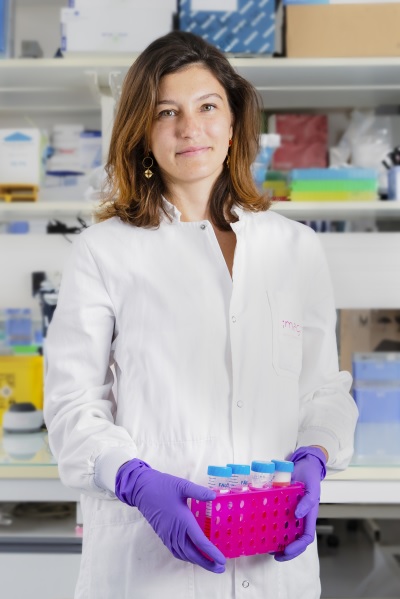
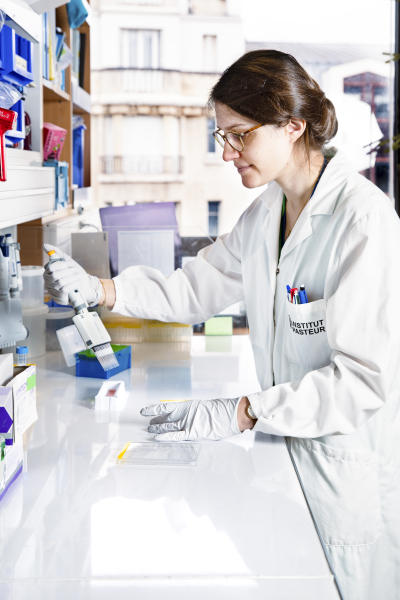
Mathilde Ruggiu, doctoral student in the Dynamics of Immune Responses laboratory, Université Paris Cité, Institut Pasteur
Driven by her desire to combine medical practice with an understanding of the underlying biological mechanisms, Mathilde has a dual background in medicine and research. She is studying the workings of drugs designed to ‘wake up’ the immune system so that it can fight cancer more effectively. Her research should help determine whether these drugs also act outside the tumour, in particular on the draining lymph node, a key element in the body’s immune response against cancer cells. The long-term aim is to identify new cellular and molecular targets for these antibodies, paving the way for innovative therapies.
Lucie Berkovitch, post-doctoral researcher in the Paris Psychiatry and Neuroscience University Hospital Group, Université Paris Cité – Cognitive Neuroimaging Unit, CEA, Inserm, Neurospin Center, Université Paris-Saclay and Department of Psychiatry, Yake University School of Medicine
As a psychiatrist and cognitive neuroscience researcher, Lucie combines medical practice and research. Her aim is to develop clinical tests in France on the effectiveness of psychedelics in treating various psychiatric disorders, including resistant disorders such as depression. Nearly one person in five suffers from a depressive episode in their lifetime, and 30% of these episodes do not respond to the usual treatments. These molecules have the potential to help people who have reached a therapeutic impasse. They may also give us a better understanding of how the brain works.
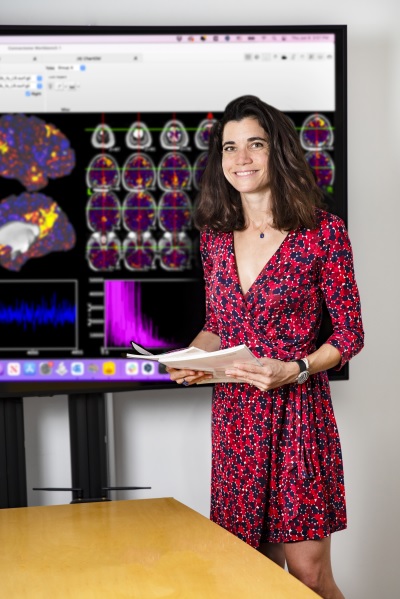
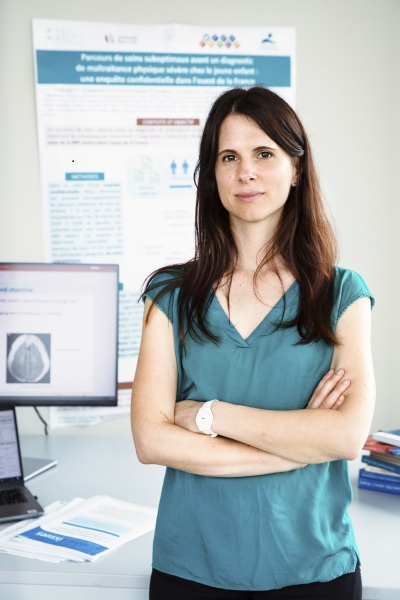
Flora Blangis, doctoral student in the Perinatal and Paediatric Obstetric Epidemiology team at CRESS, Université Paris Cité, Inserm and in the Children at Risk paediatric reception unit at Hôpital Necker – Enfants malades, AP-HP, Université Paris cité.
After working for several years as a midwife in a hospital environment, Flora decided to take her career a step further by starting a research career, focusing on the epidemiology of physical child abuse. In the short term, her research should lead to a better understanding of the epidemiology, prevention, detection and diagnosis of child physical abuse, with a view to improving prevention and child protection strategies. It should also improve our understanding of the long-term consequences of this abuse, so that we can provide better medical, psychological and social support for these children and adults.
Marion Lecorguillé, post-doctoral researcher at the Centre de recherche en épidémiologie et statistiques, Université Paris Cité, Université Sorbonne Paris Nord, Inserm, Inrae
After studying midwifery in Brest, Marion decided to pursue her commitment to women’s and children’s health by starting a career in public health research. Following a thesis on the role of maternal nutrition in relation to child development, her current work is part of the European EndObesity project, and focuses on factors linked to family lifestyle in the first 1,000 days of life, which may be associated with the subsequent risk of obesity in children. Her project also aims to improve our understanding of the social determinants associated with these family profiles, such as economic constraints or geographical origin. Its results could help in the development of tools for predicting childhood overweight and obesity.

Read more
![[Circle U.] Fast Forward Open Science](https://u-paris.fr/wp-content/uploads/2025/09/CC.-OPEN-ACCESS-WEEK-1080x675.png)
[Circle U.] Fast Forward Open Science
On the 22nd of October from 1:30 to 4:30 pm, Circle U. will host the online event ‘Fast forward Open Science’, led by Université Paris Cité, as part of the International Open Access Week 2025. Experts in open access publishing, research data management, open source...
read more
Results of the 2025 Call for Projects with the University of Toronto
The 2025 call for projects between Université Paris Cité and the University of Toronto met with great enthusiasm within the scientific communities of both institutions. Eighteen proposals were submitted by pairs of researchers; five projects were selected at the end...
read more
Call for projects 2025 UPCité – King’s College London
The call for projects between Université Paris Cité (UPCité) and our privileged partner King's College London (KCL), has been launched this friday, May 9th 2025. The objectives Université Paris Cité and King's College London are offering offering a seed funding for...
read more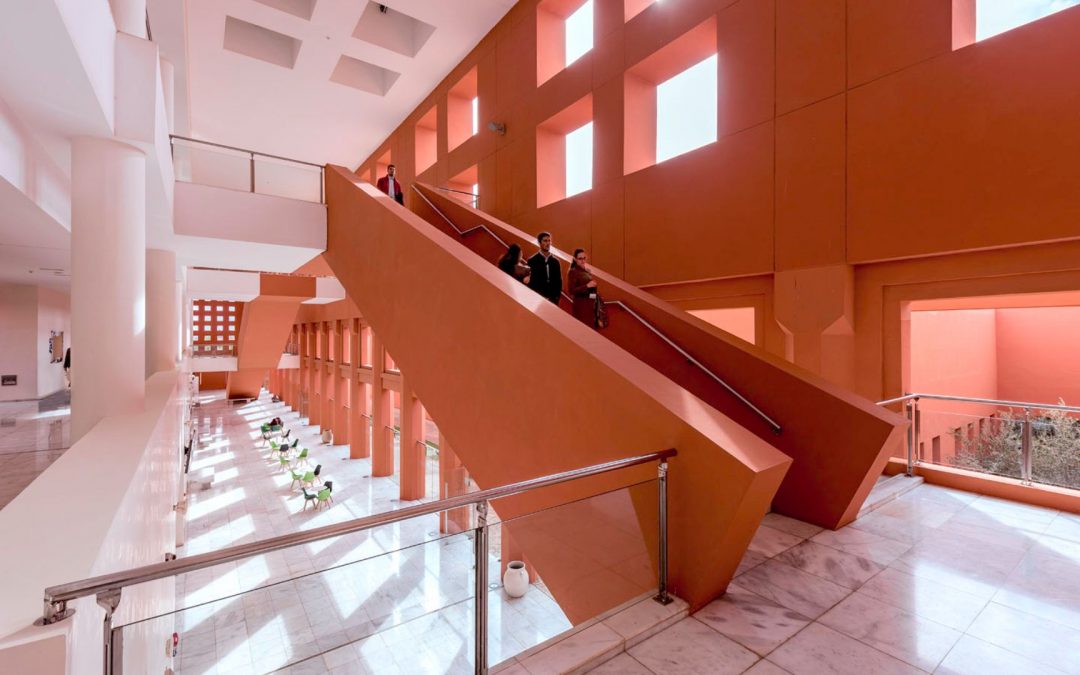
UM6P and UPCité Offer Two Joint PhD Scholarships
Mohammed VI Polytechnic University (UM6P) and Université Paris Cité (UPCité) are strengthening their collaboration by offering two joint PhD scholarships for thesis projects affiliated with one of UPCité’s Graduate Schools. This call aims to reinforce...
read more